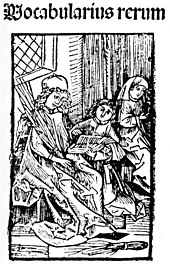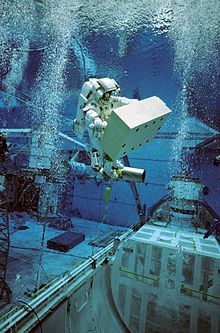


Teaching is the practice implemented by a teacher aimed at transmitting skills (knowledge, know-how, and interpersonal skills) to a learner, a student, or any other audience in the context of an educational institution. Teaching is closely related to learning, the student's activity of appropriating this knowledge.[1]
Teaching is part of the broader concept of education.[2][3]

Ateacher, also called a schoolteacher or formally an educator, is a person who helps students to acquire knowledge, competence, or virtue, via the practice of teaching.
Informally the role of teacher may be taken on by anyone (e.g. when showing a colleague how to perform a specific task). In some countries, teaching young people of school age may be carried out in an informal setting, such as within the family (homeschooling), rather than in a formal setting such as a school or college. Some other professions may involve a significant amount of teaching (e.g. youth worker, pastor).
In most countries, formal teaching of students is usually carried out by paid professional teachers. This article focuses on those who are employed, as their main role, to teach others in a formal education context, such as at a school or other place of initial formal education or training.
Teaching has been considered uniquely human because of mentalistic definitions. Indeed, in psychology, teaching is defined by the intention of the teacher, which is to transmit information and/or behavior and/or skill. This implies the need for the teacher to assess the knowledge state of the potential learner, thus to demonstrate theory of mind abilities. As theory of mind and intentions are difficult (if not impossible) to assess in non-humans, teaching was considered uniquely human.[4] However, if teaching is defined by its function, it is then possible to assess its presence among non-human species. Caro and Hauser[5] suggested a functionalist definition. For a behavior to be labeled as teaching, three criteria must be met :
| National |
|
|---|---|
| Other |
|